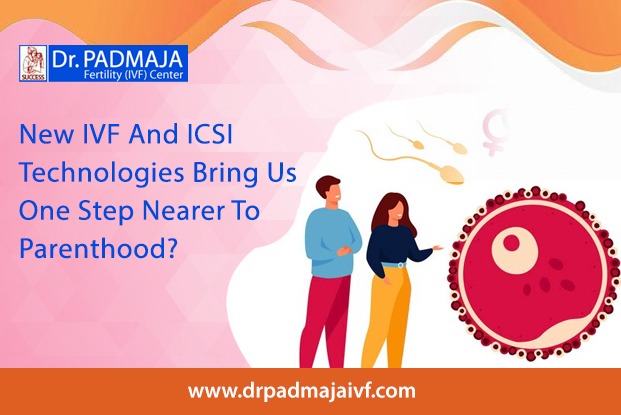For many couples struggling with infertility, the journey to parenthood can be an emotional and challenging one. Thankfully, advances in reproductive technology are opening new doors every day. Among the most promising developments are the latest techniques in IVF (In Vitro Fertilization) and ICSI (Intracytoplasmic Sperm Injection), which are bringing new hope to couples who once thought having a child might not be possible.
Today, India stands at the forefront of fertility care, and if you’re looking for the best IVF center in Hyderabad, you’ll likely come across Dr Padmaja IVF Center, a name trusted by thousands of hopeful parents across the country. Known for its success rates and compassionate care, DrPadmaja Fertility Center is leading the way with advanced reproductive technologies that are transforming lives.
So, what exactly is new in IVF and ICSI?
Let’s begin with IVF, a process where eggs are fertilized outside the body and then implanted into the uterus. Recent innovations such as time-lapse embryo imaging and genetic screening are improving embryo selection, leading to higher success rates. With better monitoring and screening, doctors can now identify the healthiest embryos, increasing the chances of a successful pregnancy.
How is sperm selected for ICSI procedures?
ICSI, on the other hand, is a highly specialized technique used when male infertility is a concern. It entails directly putting one healthy sperm into an egg. New micromanipulation tools and sperm selection methods, including Magnetic-Activated Cell Sorting (MACS), are allowing doctors to choose the best quality sperm, which enhances the effectiveness of the procedure.
What makes Dr Padmaja IVF Center one of the best IVF centers in Hyderabad?
At Dr Padmaja IVF Center, these latest technologies are being combined with experienced medical care to create individualized treatment plans for each couple. Their team of fertility experts ensures that patients receive not only the best clinical care but also emotional support throughout the process. As one of the most sought-after clinics in the city, DrPadmaja Fertility Center continues to invest in state-of-the-art equipment and stay ahead with global advancements.
One of the reasons many people consider Dr Padmaja IVF Center as the best IVF center in Hyderabad is because of its consistent success stories. Couples from across India and even abroad travel to Hyderabad to seek treatment here, encouraged by the clinic’s high standards, transparency, and patient-first approach.
Conclusion
The world of fertility treatment is evolving rapidly, and with the introduction of groundbreaking IVF and ICSI technologies, the dream of becoming a parent is more achievable than ever. If you or someone you know is navigating infertility, exploring treatment options at the DrPadmaja Fertility Center might just be the first step toward a new beginning.
About the Author

This blog is penned by a devoted content specialist passionate about raising awareness around fertility treatments and emotional well- being. With in- depth disquisition on motifs like IVF and fertility, the thing is to give precious perceptivity for couples on their trip to parenthood.
Frequently Asked Questions (FAQs)
- What are the latest advancements in IVF and ICSI technology?
Recent advancements include time-lapse embryo imaging, preimplantation genetic testing (PGT), artificial intelligence in embryo selection, and improved cryopreservation methods. These technologies help improve success rates and reduce risks.
- How is ICSI different from traditional IVF?
In traditional IVF, eggs and sperm are mixed in a lab dish to allow fertilization. In ICSI (Intracytoplasmic Sperm Injection), a single sperm is directly injected into the egg, making it ideal for male-factor infertility cases.
- Does the use of new IVF/ICSI technologies increase the chances of pregnancy?
Yes, newer technologies help identify the healthiest embryos, improve fertilization rates, and support better implantation outcomes, especially for couples who have had failed IVF cycles in the past.
- Is AI used in IVF treatment?
Yes. AI-based systems can now assess embryo quality more accurately by analyzing thousands of embryo images, improving embryo selection and potentially increasing success rates.
- What is time-lapse embryo imaging?
It’s a non-invasive technology that captures images of developing embryos at regular intervals, allowing embryologists to monitor their growth and choose the best ones for transfer without removing them from incubation.
- Can genetic testing be done before implantation?
Yes. Preimplantation Genetic Testing (PGT) allows embryos to be screened for genetic or chromosomal abnormalities before they are implanted, reducing the risk of miscarriage or inherited conditions.

